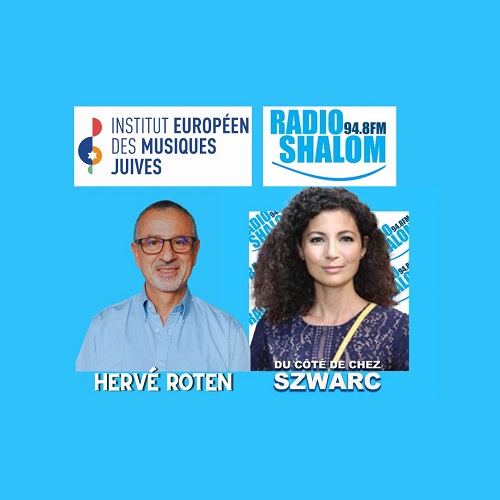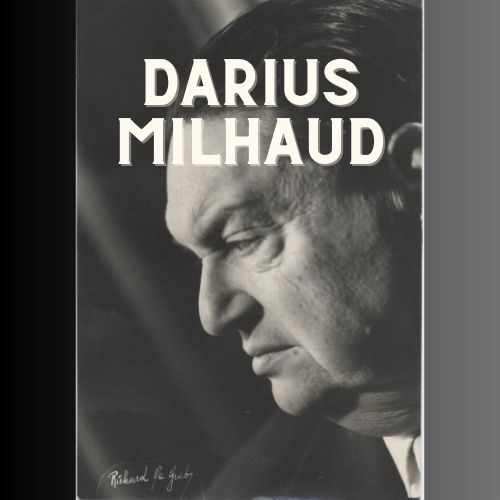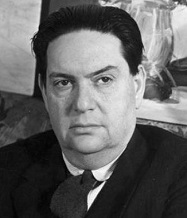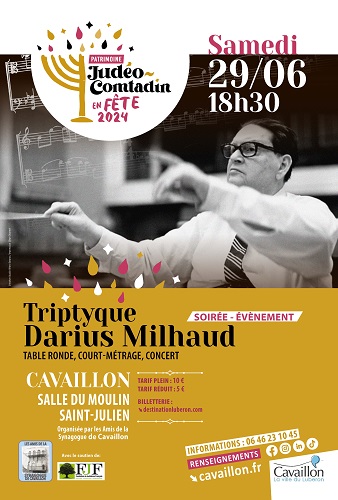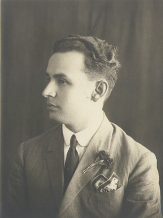
Excerpt of the booklet from the CD Alberto Hemsi, Coplas sefardies, coll. Musical Heritage of the Jews from France, EIJM’s editions, 2004
Born on June 27, 1898 in Cassaba, a Turk village East of Izmir, to Italian parents, Alberto Hemsi studied at the school of the Universal Israelite Alliance. In 1913, he received a scholarship and was sent to Milan by the Musical Israelite Society of Izmir. He entered the Royal Music Conservatory of Milan in 1914, and had solid studies with the famous teachers of the time: piano with Andréoli, harmony and composition with Bossi and Perinello.
Near the end of World War I, he was called to join the army, as an Italian subject. Wounded at the right arm, he obtained several civil and military decorations. He became captain at the end of the war, and left the army to dedicate himself only to piano and composition.
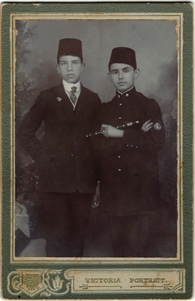
Between 1920 and 1923, Alberto Hemsi taught theory, piano and choral singing in Izmir. From 1924 to 1927, he settled down in Rhodes, gave courses and started ethnographic and folkloric research, especially among old women and cantaderas, semi-professional singers, renowned for their beautiful voice, who were invited by families to sing during special events (weddings and other celebrations). It was also in Rhodes that he met his wife Myriam, whom he married at the end of August 1930 and who gave him three daughters: Allegra, Juliette and Ketty.
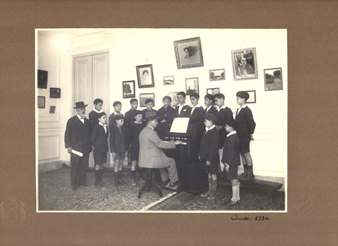
During his Parisian career, Hemsi was in charge of conducting two Sephardi synagogues, Brith Shalom and Don Isaac Abravanel, as well as teaching the courses of musical liturgy in the Israelite Seminary of France. A musicologist, hard worker dedicated to the Judeo-Spanish cause, he hosted several radio shows in the Spanish language on a French radio station in order to make people know more about Judeo-Spanish folklore. Shortly before his death in 1975, he was chosen to be correspondent at the Royal Academy of Arts of San Fernando in Madrid in recognition of his work on Sephardi music.
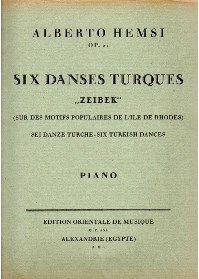
A great part of his work exists only as tracing papers or in manuscript, that are today kept at the European Institute of Jewish Music following the donation of his archives by his widow, Mme Myriam Capelutto Hemsi.
- Purchase sheet music by Alberto Hemsi on the EIJM’s online shop
- Purchase the CD Alberto Hemsi, Coplas sefardies, coll. Patrimoines Musicaux des Juifs de France, Edition de l’IEMJ, 2004.
- Listen to samples from the CD Alberto Hemsi, Coplas sefardies.
- Watch a video about Alberto Hemsi
- Find more about Alberto Hemsi on our YouTube channel
- Browse our archives on Alberto Hemsi
